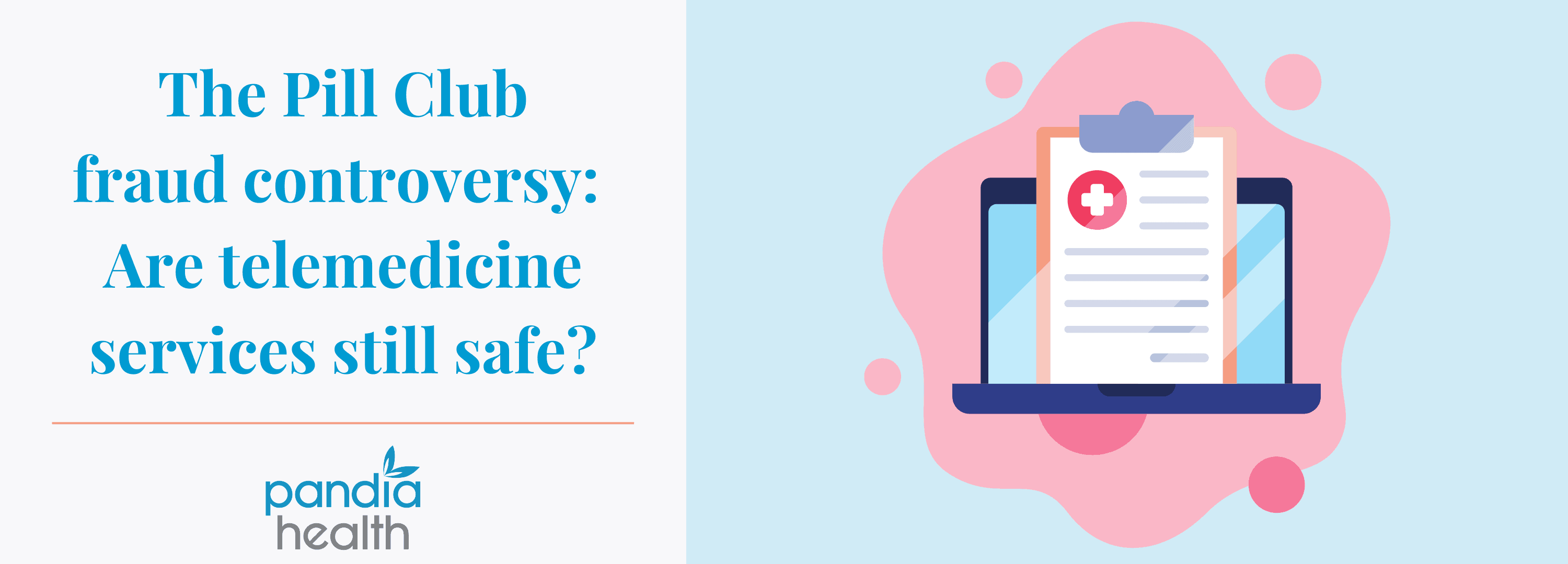If you follow the world of birth control delivery services, you may have recently heard about the recent controversy surrounding a well known telehealth startup, The Pill Club. For a long time, The Pill Club reigned supreme as the trendy way to get your birth control delivered, it seemed at one point that all the influencers you knew were talking about The Pill Club. But after news broke about The Pill Club bankruptcies, everyone was left wondering –what implications does this controversy have for telemedicine and contraceptive care services as a whole?
What happened to the Pill Club?
Simply put, California Attorney General Rob Bonta stated that “The Pill Club unacceptably siphoned off Medi-Cal funding intended to help vulnerable communities access essential healthcare.”
But that’s not where their trouble began. For a long time, The Pill Club was regarded as a go-to telemedicine service for those seeking out birth control prescriptions. In more recent years The Pill Club looked to expand past being just an online birth control pharmacy, and was beginning to provide other products. They rebranded the company and changed the name to Favor. Eventually, after facing a trademark lawsuit the name was changed back to The Pill Club.

Then, this year, California authorities reached a $18.3 million settlement with The Pill Club in a lawsuit filed under seal of the California False Claims Act. The settlement calls for $15 million to be paid to the California Department of Justice, while $3.3 million will go to the California Department of Insurance. The settlement comes after an investigation by the California Department of Justice found that The Pill Club unlawfully billed California’s Medicaid program, Medi-Cal, by dispensing large quantities of products that customers had not asked for such as female condoms as well as billing for services it had not rendered.
But what does this mean? The official press release from the California Attorney General Rob Bonta breaks it down like this:
- Billing for services it had never rendered. For example, investigators found multiple instances in which the company had submitted false claims, for 30-minute face-to-face counseling sessions when in reality, The Pill Club’s nurse practitioners and practitioners had no direct or real-time contact with those patients. Investigators found as many as 3,000 Medi-Cal claims submitted by the Pill Club for purported medical services that were actually never rendered.
- Dispensing enormous quantities of costly products its customers had not asked for. For example, DOJ investigators found that The Pill Club dispensed shipments of FC2 female condoms, to multiple women who were Medi-Cal beneficiaries, but who had no interest in receiving or using these devices. The company billed Medi-Cal for these products at prices that were, on average, 250% higher than the retail price. FC2 would be sent out as part of a ‘bundle’ when patients requested emergency contraception. Patients could not easily opt out of the bundle. In addition, the Pill Club regularly sent the maximum quantity of FC2 to new patients and with refills. Medi-Cal beneficiaries were sent massive quantities of FC2 — sometimes as many as 96 were dispensed at a time — and The Pill Club was in turn reimbursed as much as $2,253.80 for a single prescription delivery. The DOJ investigation found The Pill Club continued sending many patients large quantities of the condoms and submitting Medi-Cal claims for the condoms, even after the patients asked to stop receiving them.”
The Pill Club was initially investigated due to a whistleblower complaint in 2019 alleging that nurse practitioners were prescribing birth control pills & other products without proper supervision as required by California law. They alleged that The Pill Club “increased its profits while putting women’s health in danger.” A big no-no when it comes to health care.
What is happening to The Pill Club users now?
While the status of The Pill Club hangs in the balance, those who were relying on them for their birth control can transfer their prescription to a telehealth or birth control provider that puts patients before profits –like us! Our team of doctors have all taken the hippocratic oath of ‘do no harm’ meaning they will recommend the best birth control option for you regardless of its profit margins.
You can simply transfer your prescription to our online pharmacy by getting started below.
Transfer Your Birth Control Prescription, Get FREE Delivery
Skip the trip to the pharmacy with Pandia Health. Sign up today and our expert care advisor will help you transfer your prescription to enjoy FREE delivery and FREE goodies with all your refills!
Are birth control telemedicine services no longer safe?
FALSE! We are extremely saddened by the news of this lawsuit because we share the common mission with The Pill Club of increasing women’s access to contraception when they need it. It’s important to note that while this is a moment to hold The Pill Club accountable, the entire telemedicine industry is not to blame. However, there are good ways to go about providing services, and not so good ways.
How to look for a good telemedicine provider?
There are plenty of ways to spot a good telemedicine provider, but it all comes down to one common tip –do your research! Not all telemedicine is made equal, so it’s important to know what to look out for. You can learn more about good telemedicine vs. bad telemedicine here.
We see this type of thing happen all the time, in every industry. It’s important to know that when one controversy happens, it does not soil the whole industry. There are many companies with dedicated teams of medical professionals (or in our case, expert doctors) that are passionate about bringing top notch, essential healthcare to the comfort of your home.

